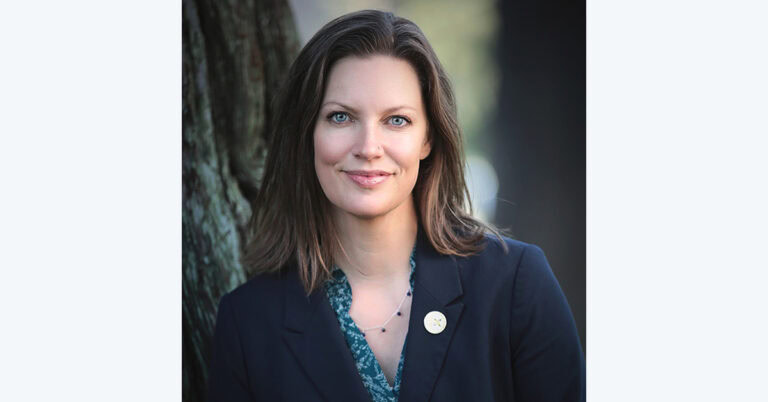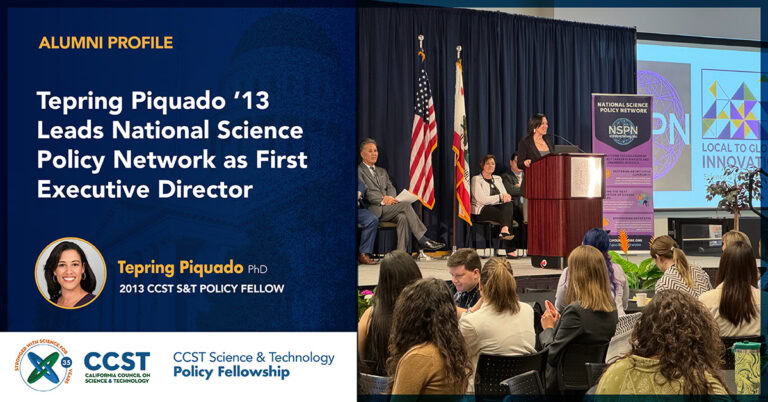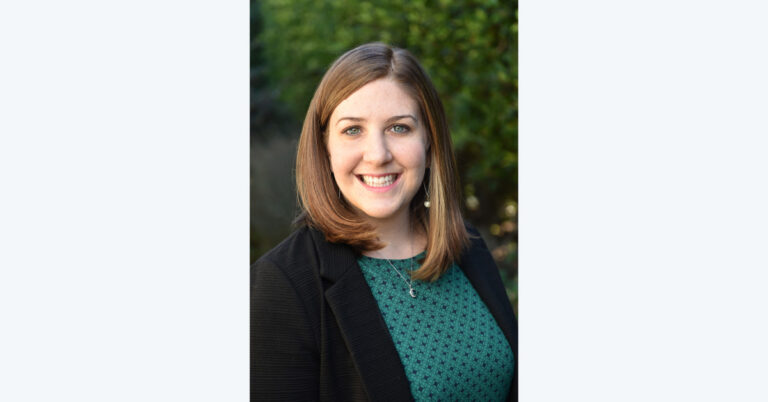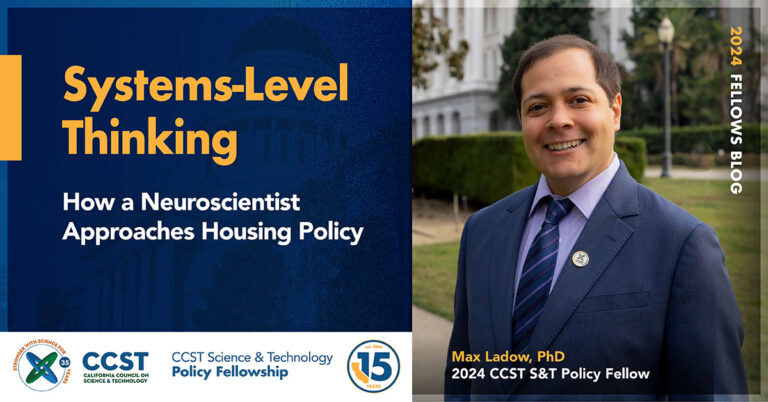CCST’s Brie Lindsey, PhD, Hired as Deputy Director at California Ocean Science Trust
The Room Where it Happens: Q&A with ‘23 Fellow Jeanmarie Gonzalez, PhD
September 26, 2023 | CCST Newsroom, CCST S&T Policy Fellows
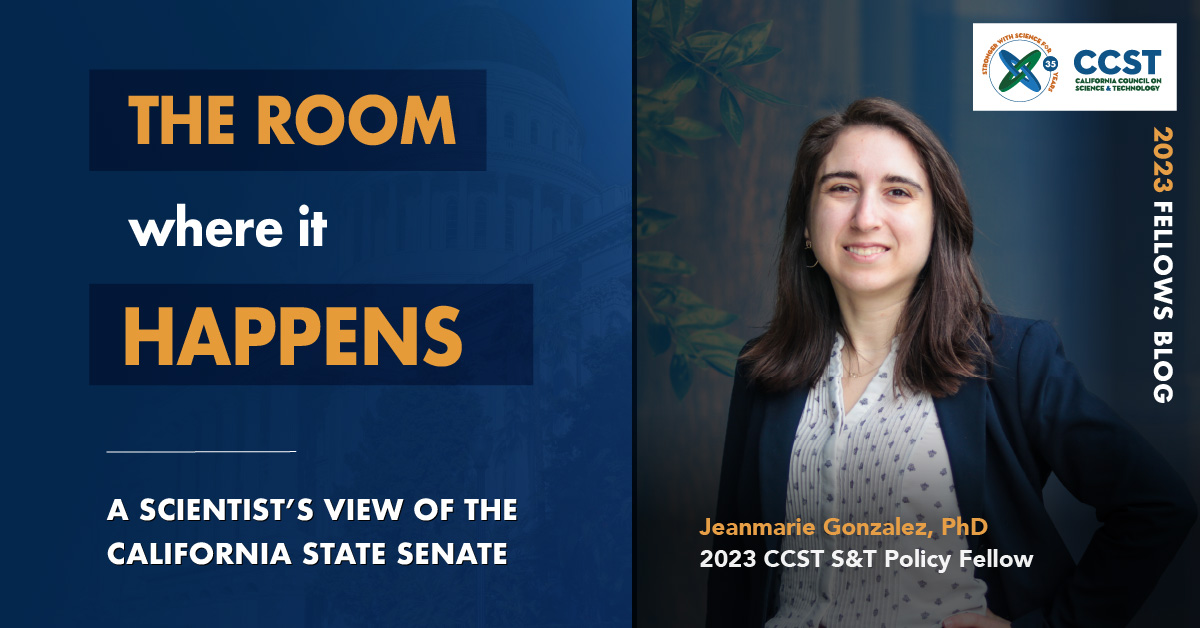
Where are you placed?
I’m working in the office of Senator Maria Elena Durazo, who represents neighborhoods in the City of Los Angeles for the 26th District. I staff her on policy issues that are addressed in the following Senate committees: Energy, Utilities, and Communications; Transportation; Agriculture; and Health. I’m also staffing several bills for her.
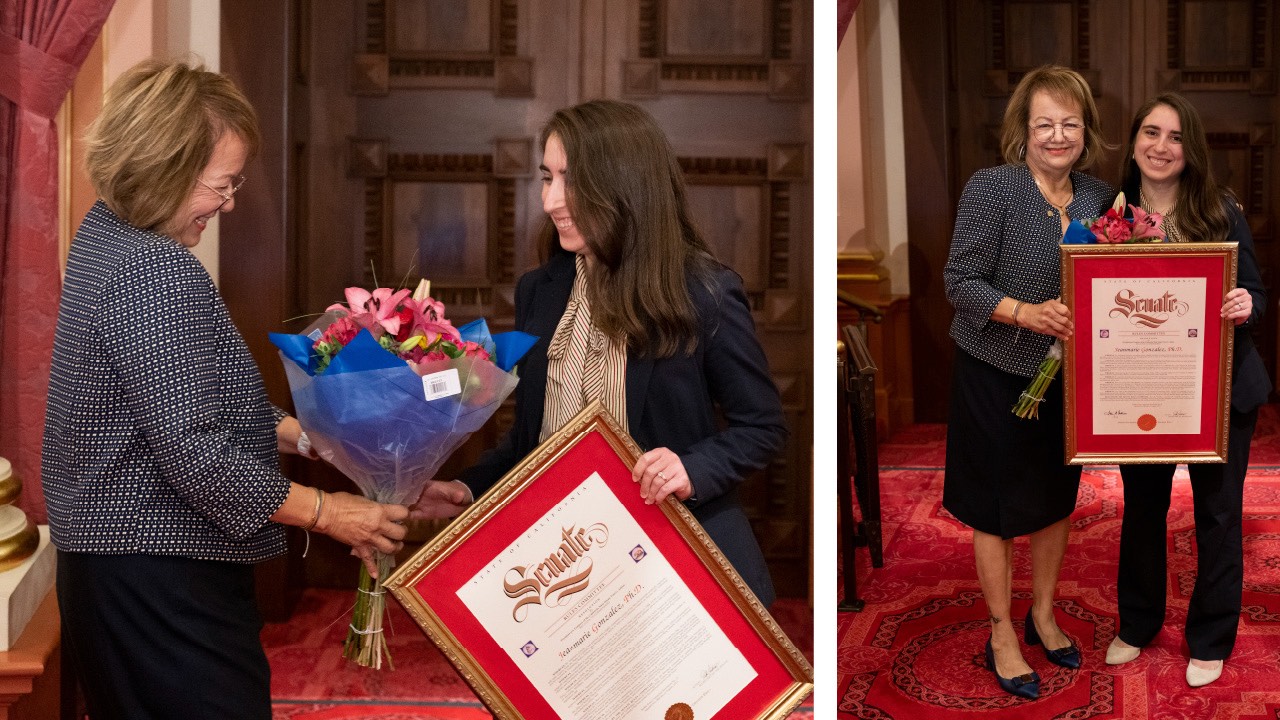
What does it mean to staff a bill?
Every Senator or Assemblymember authors anywhere from 1-2 dozen bills every session. Staff like me are each responsible for guiding several of these bills through the legislative process. At the beginning of each legislative session, legislators decide on what their “bill package” will be for the year. Then the text for each bill must be submitted to Legislative Counsel (the non-partisan public agency that drafts legislative proposals), and the bills must be submitted to the floor desk, also known as “crossing” the desk. Here’s a picture of me “crossing” one of the bills I’m staffing.

From there the bills get refined as they go through policy and fiscal committees before they are up for a floor vote in the house of origin (in my case the Senate). If the bill gets enough votes, it goes to the other house (in my case the Assembly). After that, the bills go to the governor’s desk to sign! All these steps of the process involve meeting strict deadlines, writing materials, and meeting and coordinating with a wide range of interested parties and staffers.
Who are some of the interested parties you meet with?
Writing good bills means working with many different stakeholders. For example, many bills have “sponsors”, organizations that are experts in an issue area and are often doing grassroots work on the ground and know exactly the specific types of issues Californians are facing. They can be very hands-on in all aspects of the bill process. There will also be different groups that have opinions on the bill–sometimes positive, and sometimes negative. Working with potential opposition to address their concerns and make the bill stronger is often just as important as building a strong coalition of supporters. Before each policy committee or floor session vote, it’s also important to meet with the staff of legislators to brief them about the bill, gauge how their bosses feel about the bill, and answer any questions they may have. I also work with a great group of other staff in Senator Durazo’s Office.

Do you work with committees before hearings?
Yes! Working with committee staff before hearings is critical! Ideally you should work with committee staff to get feedback even before you introduce a bill. Committee staff are subject matter experts and often have a lot of context that they can share. They also work with the chair of the committee to draft proposed committee amendments and it’s helpful to have an open dialogue and understand the chair’s perspective. This also helps your boss prepare for committee hearings better. Committee hearings remind me of giving research presentations in grad school. The most challenging, but also the most interesting part, was preparing for questions that might be asked. In grad school, it was professors or other researchers who would ask questions to you, and in committee hearings, it’s legislators asking your boss questions. It’s a great example of how many translatable skills you can carry over from a PhD to the policy world.
What is the legislative cycle like?
Everything revolves around the legislative calendar and its deadlines! Things are very busy when we’re facing deadlines like the last day for bills to be heard in policy committee, or the last day for bills to be voted on before being sent to the Governor to be signed. Again, this was very much like grad school where I had very busy spurts based on my experiments. On the other hand, during recess when the member is in the district office for extended periods of time, things are slower in the capitol offices in Sacramento. This is a great time to get up to speed on all the issue areas you staff, meet with people like CCST alumni, and get ahead on the next part of the legislative process.
What are some surprising things from your CCST placement experience?
Very early on in my placement, the Senator was invited to Governor Newsom’s Inauguration and his march across the Tower Bridge. It was very exciting to be able to participate and see historic events unfold! I also got to see one of my former representatives from my grad school days get sworn in as Attorney General! One of my favorite parts of being in Sacramento is getting to be up close and personal with so much of the policy world.

What is life in Sacramento like?
Sacramento has a very nice, balanced feel! On the one hand, you are surrounded by lots of people who are very motivated about making a difference in the lives of Californians. On the other hand, Sacramento also has a very laid-back feel with a great quality of life. The neighborhood I live in, Midtown, is very walkable, and I’m within walking distance of many restaurants, shops, and coffee spots. At the same time, it’s not as hectic as bigger cities and it’s very easy to get around. I also had the opportunity to adopt a dog (something I didn’t have time for in grad school) a few months into my placement, and it’s been great taking him on walks on all the tree lined streets in the “grid.”
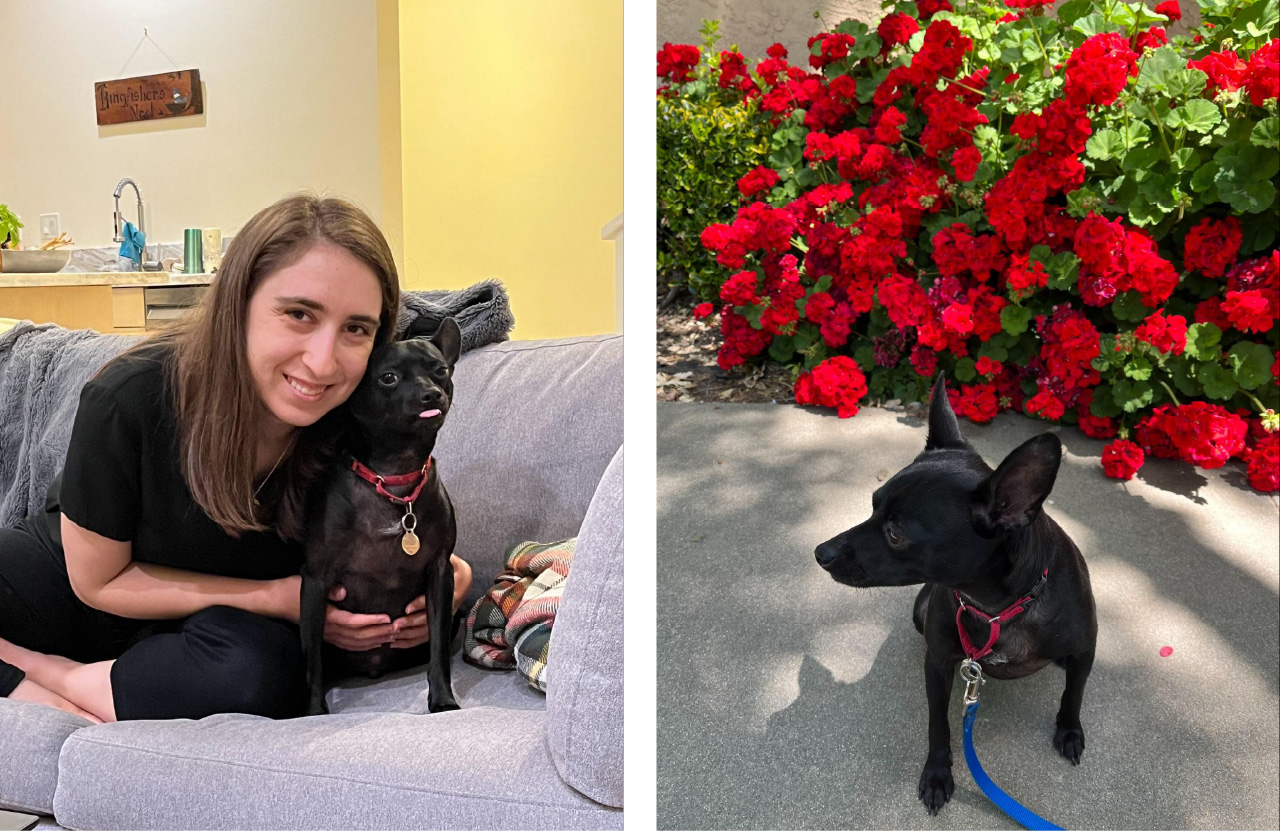
About the CCST Science & Technology Policy Fellowship
The CCST Science & Technology Policy Fellows program places PhD-level scientists, engineers, and social scientists in the California State Legislature, State Agencies, and Offices of the Governor for a year of public policy, leadership training, and public service—training scientific thinkers to be policy-savvy, while helping equip California’s decision makers with science-savvy staff. Discover how our CCST S&T Policy Fellows make a difference in California’s policy arena and learn how to apply at CCST.us/CCST-Science-Fellows-Program.

